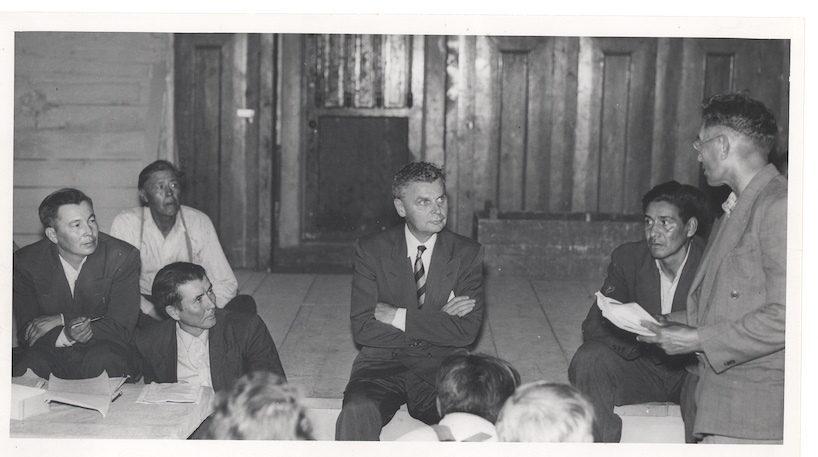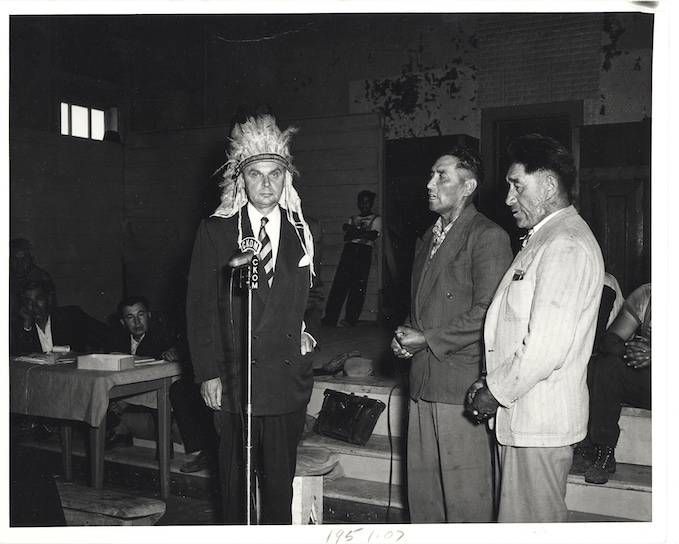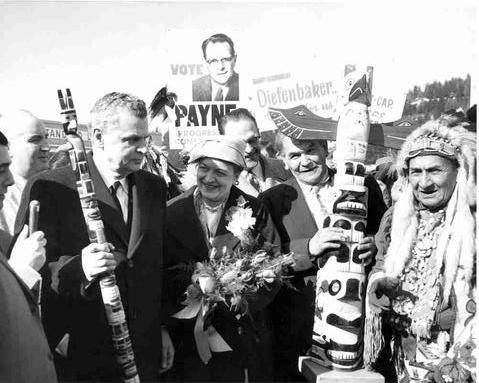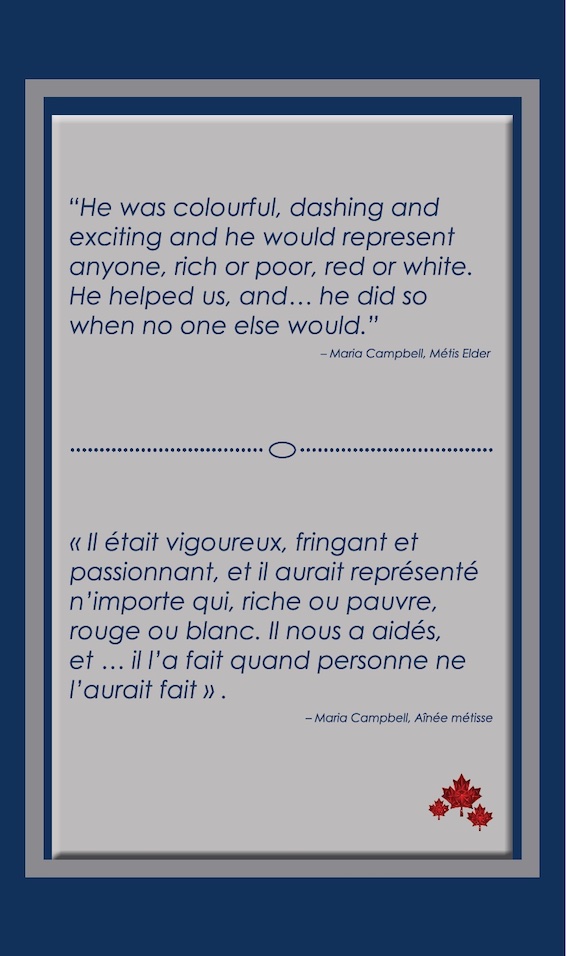Early Exposure
As both a public figure and a private citizen, John Diefenbaker distinguished himself through his advocacy on behalf of Indigenous peoples. From a young age, Diefenbaker developed relationships with Indigenous groups and leaders, and witnessed first-hand the oppressive effects of colonial policies. These early experiences influenced his actions for the rest of his life.
“The Indians… I saw their conditions. Unbelievable – the poverty, the injustice done to them. Treaties made in that very area in which I lived; I saw them broken, with no recourse.”
– Diefenbaker, 1976
Towards a New Relationship
In 1958, Diefenbaker set another precedent when he appointed James Gladstone (Akay-Na-Muka or “Many Guns”) of the Kainai (Blood) Nation as Canada’s first Indigenous Senator. An outspoken advocate of treaty rights, Gladstone lobbied for revisions to the Indian Act. Ironically, he could not vote, despite holding office. Two years later, it was Gladstone who moved the Bill through the Senate that gave all First Nations the right to vote federally.
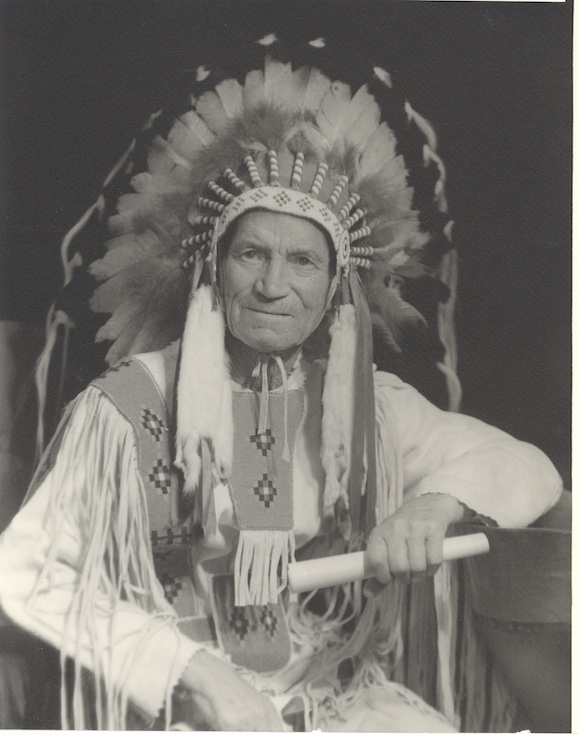 |
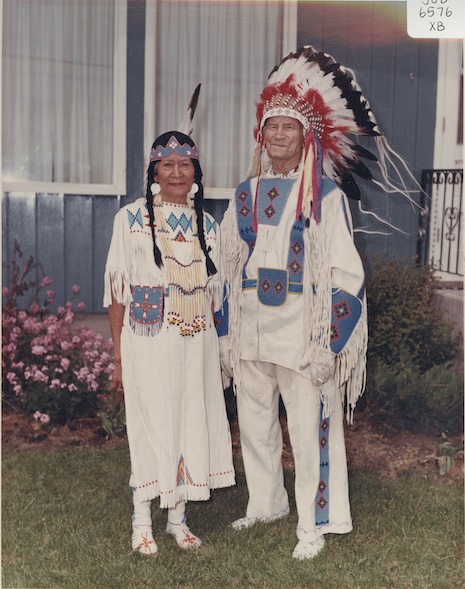 |
Securing the Franchise
Diefenbaker’s most significant contribution to Indigenous rights came in 1960, when his government extended the federal franchise to all First Nations. Prior to this, Aboriginal Peoples forfeited their status by law – including all treaty rights and the freedom to live on reserves – in order to vote. First Nations people went to the federal polls for the first time in 1962. Voter turn-out exceeded expectations at 65%.
“The recent legislation… [extends] to all Indians the right to vote at federal elections.... …existing rights and treaties traditional or otherwise possessed by the Indians will not in any way be abrogated or diminished…. Parliament’s intention [is]… to confer an additional right… the right to vote without restriction.”
– Diefenbaker, 1960
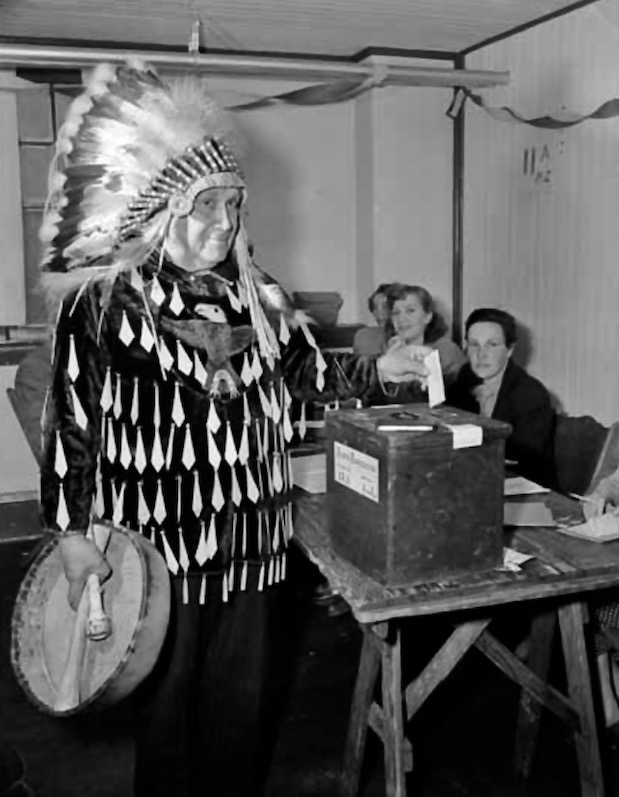 |
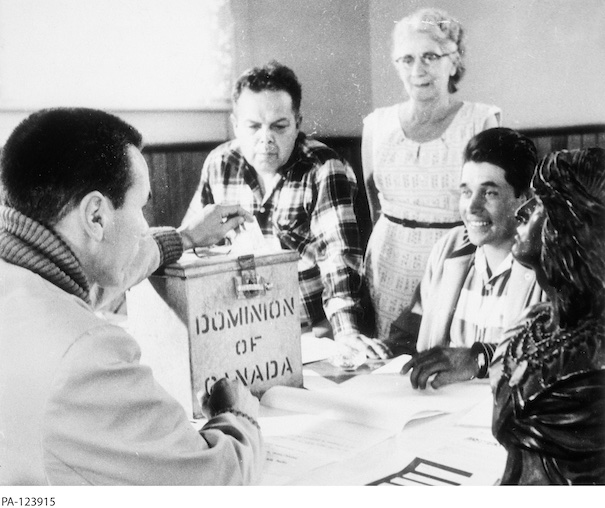 |

